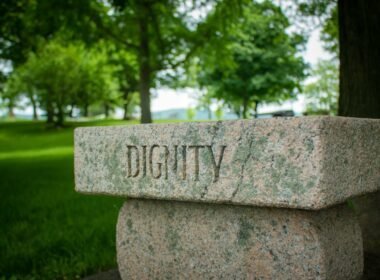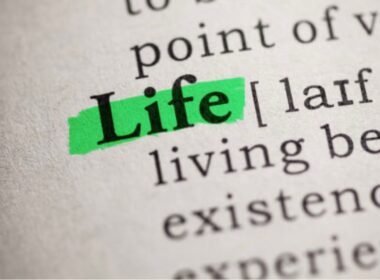Browsing Category
Philosophy
7 posts
The Virtue of Work and the Making of a Fully-grown Person
The virtue of work validates the idea that engaging in work is ethically responsible for building good character and dignity, which are essential building blocks for economic progress and stability in life. In most world cultures, work is seen as a way of achieving personal growth and success.There is no other virtue that defines the quality and the beauty of our personhood as much as the concept of work and our attitude toward it.
The Extent of Humanness and the Dignity of a Person
In recent decades, there have been vast misconceptions about gender roles, differences, and definitions. The more traditional way of conceptualizing a person's humanness and dignity is by understanding what people mean when they talk about dignity and humanity. Dignity and humanity from time immemorial are a person's inherent virtues. Of course, this can be stated more clearly concerning a person's self-worth or self-respect. Virtue, stated differently, is about the person's intrinsic character content that reveals their personhood. It is the very essence of a person that makes them a unique individual or virtuous being.Have you ever sat down to ask yourself what it means to be human? Every day, I try a little here and there to ponder on this for the sake of justice and equity for everyone who crosses my path. I often ask myself, what are the basic features or characteristics to watch out for to conclude the extent of the humanness of a person? Is it because one can talk, run, walk, and work or engage in intellectual discourse and co-exist with fellow humans? Is it because of our physical body structure? Or is it because we possess a memory that keeps details of our past behaviors?How do we want to differentiate or define a human from other primates, for instance, since many primates could perform some of these essential functions mentioned above?
What is a Good Life?
The virtues constituting a good life have been an age-long debate among philosophers. Socrates argued that a good life must be cultivated and chiefly valued. Aristotle conceived it as eudaimonia, the highest human good, the only good desirable for its own sake (as an end in itself) rather than for the sake of something else (as a means toward some other end). Generally speaking, eudaimonia is a Greek word for well-being, living well, happiness, and flourishing.Undoubtedly, everyone desires a good life or eudaimonia, but our challenge is how we might attain it without hindering the flourishing of other people around us. You can achieve a good life if you focus on developing a growth plan for yourself, decide to collaborate with other people, and give a good portion of your estate for others to benefit.
Resolving the Problem of the Original Sin Using the Work of Augustine and Calvin as a Guide.
According to the biblical narrative, the problem of sin historically goes back to the primeval era of Adam and Eve in the Garden of Eden. If one reflects on the Bible carefully, the sin of Adam to a curious and critical mind like Augustine and, subsequently, Calvin, far outweighs the metaphoric representation of the mere eating of a fruit. From time immemorial, no one has decoded the nature of the fruit that Adam and Eve ate or the name of the fruit. Some familiar artistic paintings we have around tried to depict the fruit as an apple, but we know that cannot be true! It is mere guesswork because, according to the biblical description of the Garden of Eden, apple trees may not survive in such a location due to climatic conditions if the location is precisely the same as the place in our present physical world.Our continued frustration is that today, nobody knows what the fruit looks like or whether we still have similar fruit in the world among the range of edible fruits around the globe. At best, we may receive comfort in the hope that the fruit is perhaps a figurative expression of a mystery that no one accurately records in its full details. Unfortunately, the only traceable leftover from this classic Edenic garden drama is the weight of condemnation and the generational consequences manifested in perpetuity.
Saint Augustine on Sin
The sin of Adam in the narrative of the Bible, to a critical mind like Augustine, far outweighs the symbolic representation of eating fruit. The weight of condemnation and the generational consequence that it manifests in perpetuity always leaves one wondering what exactly could have been the nature of Adam's sin. The Bible records sin as eating the fruit of both knowledge of good and evil. To a critical mind, the problem is not so obvious but symbolic, for the nature of the fruit is a situation where there is a simultaneous possession of both sudden awareness of right and evil, which is paradoxical to a critical mind.
The Pursuit of Ecstatic and Eternal Happiness
Happiness has been a subject exposed to an age-long contemplation among philosophers. The most profound definition of it was from Aristotle, who described it as a state of eudaimonia - the state of the total well-being of a man. When thought about comprehensively, eudaimonia encapsulates a flourishing life and a form of true and transcendent Happiness. Therefore, in a sense, I can define Happiness as having a sense of fulfillment and accomplishment, which results from putting your best into a task with positive results or rewards to show for it. Most people are pretty familiar with this in their conceptual understanding of Happiness.
The Theory of Personhood and Your Authentic Self
Personhood is one of the most controversial concepts to discuss in determining what makes a human a person. For philosophers, a human is a biological expression, while a person is a moral expression. Therefore, philosophically speaking, persons are part of our moral community and worthy of ethical consideration. However, this can be very problematic and slippery because if humanity can perfect the basic functionalities of a humanoid artificial intelligence, would it be considered a person if it meets the moral acceptance of our community? Again, would a serial killer like Luis Garavito or a terrorist like Osama Bin Laden still be considered persons, even when they violated the laws of society in a significant way? Considering this view, a serial killer or a terrorist can surrender his personhood through these unacceptable inhuman actions, rendering him persona non grata.












